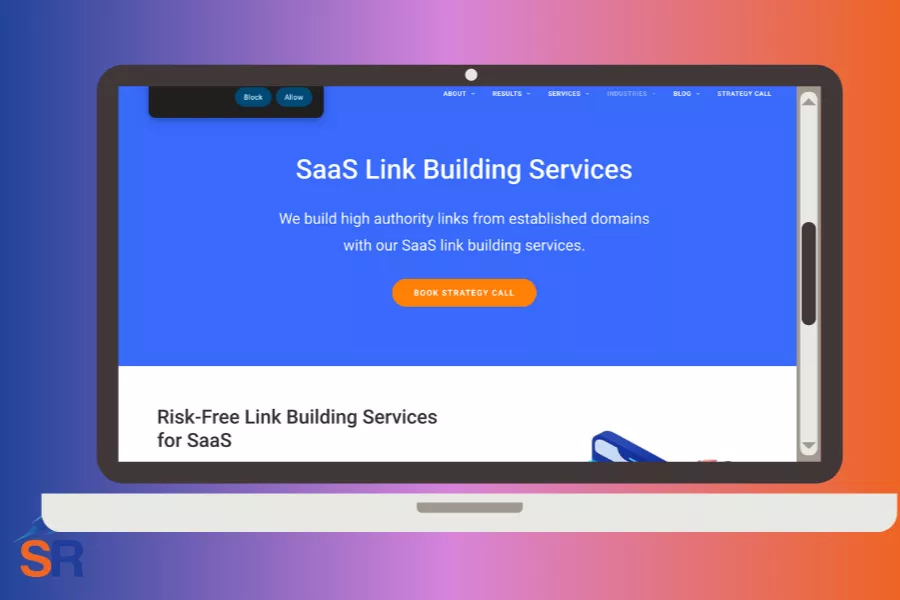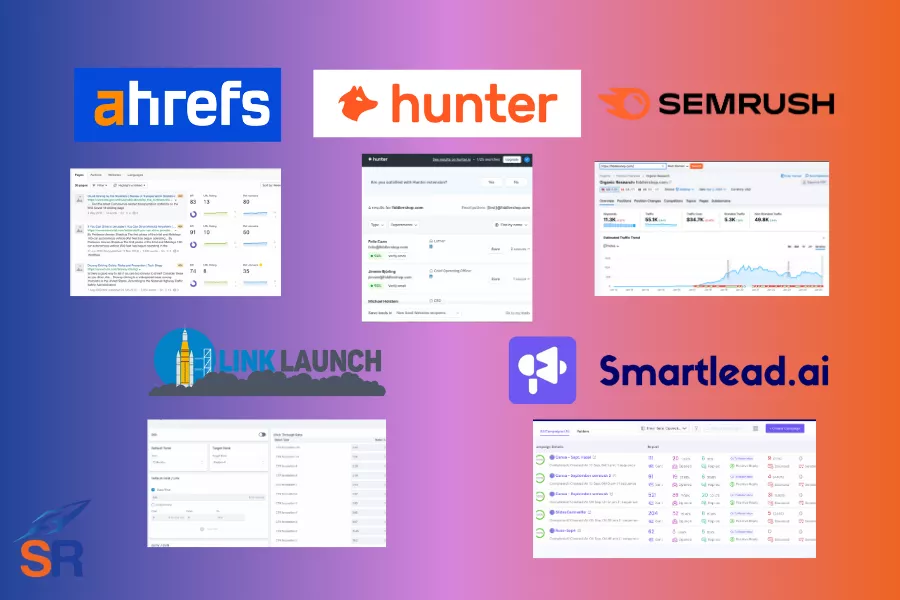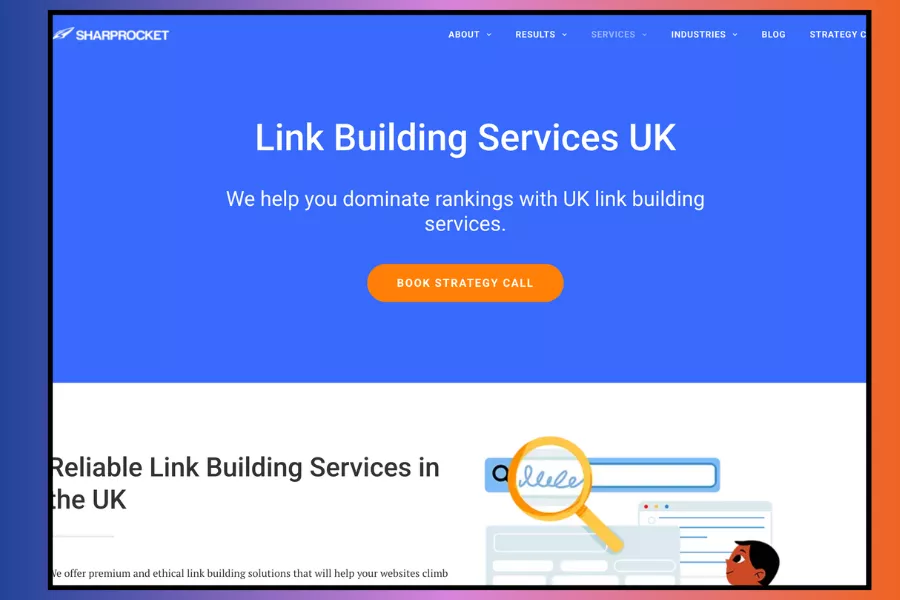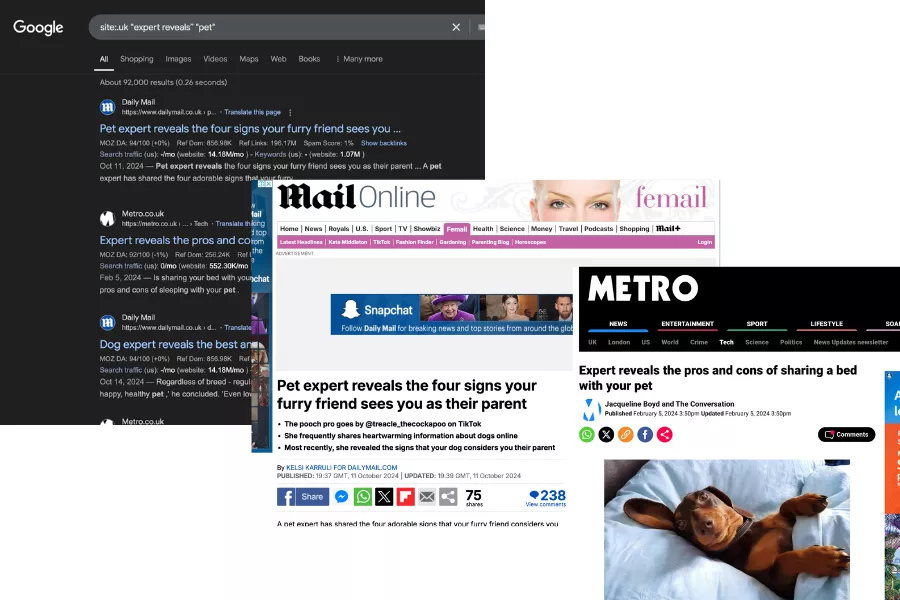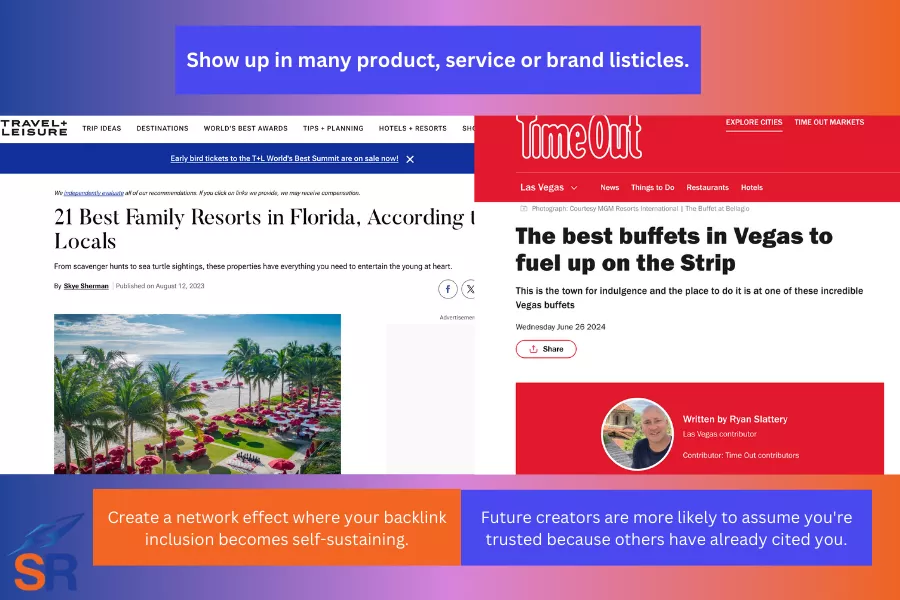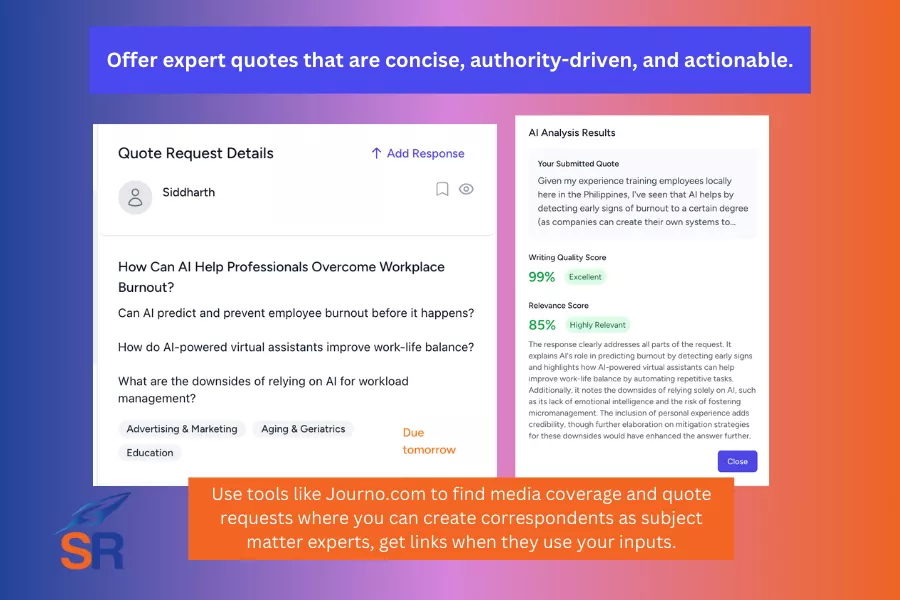It’s been a crazy month since the March Core Updates. We’ve seen significant search ranking volatility as they covered major changes to ranking systems and integrated new spam policies.
As of this writing, the rollout for spam updates is now complete (for Core Updates, we still have to wait for the complete rollout) and there will be no helpful content updates.
We’ve seen our clients’ sites winning from a holistic SEO approach, including building backlinks for Google Helpful Content, and have observed significant things worth sharing today.
Contents
ToggleHow are backlinks going to be affected?
Backlinks are a part of the content, and their value and impact are determined by different factors, listed as:
- Content where the link is hosted (referring page)
- Location within the page (link placement)
- Anchor text and context of the link (reason why it is placed)
- Relevance of the link to the entire topic of the page
- Relevance of the link to the entire domain
- Page/content trying to get the link (destination page)
Content plays a significant role in acquiring HCU-compliant backlinks. Whether it is judged to be helpful will impact the links’ value.
How To Create Content For HCU-Optimized Backlinks?
Target Content For Well-Defined Audience
Site creators who create content relevant to their services and vice versa, offering services related to their content, are currently winning.
So, it is important to develop content assets that tap into a specific audience segment that correlates well with your brand’s offerings.
Produce well-thought-out informative pages that provide answers to the queries your target audience is looking for. As you bank on these guides with more EEAT signals (Experience, Expertise, Authoritativeness, and Trustworthiness), you satisfy searchers’ needs and establish trust with them for more site visits.
For instance, we’ve been publishing comprehensive guides for potential franchise owners and food and beverage entrepreneurs in the local space.
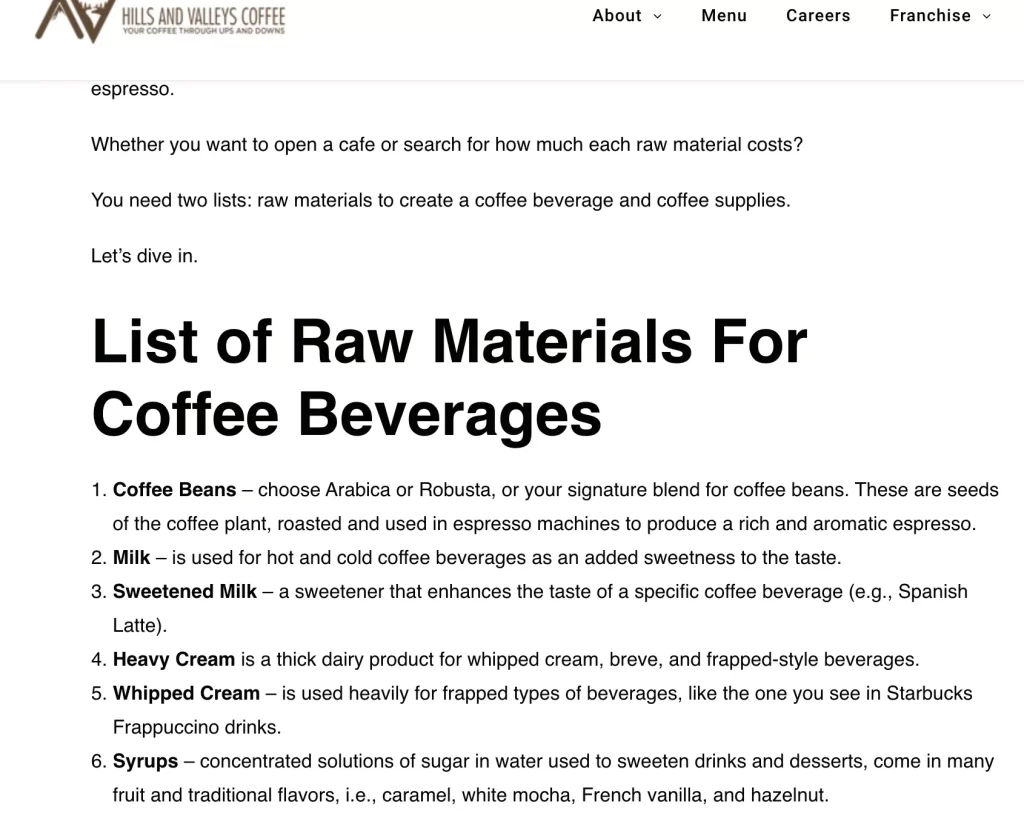
We’ve covered major topics related to starting and running a coffee shop, which has helped us rank for primary keywords and bring in thousands of search traffic every month.
Our content assets are tied directly to our core service—coffee franchising packages, and focus on serving our audience with this well-defined content theme.
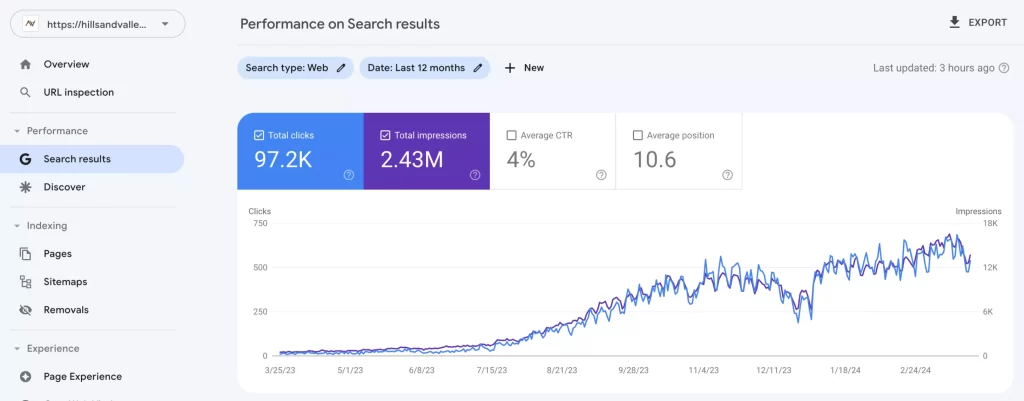
How will this content strategy attract links?
Reasons why it works:
- It helps you rank for keyphrases other content creators are searching for to find references to their content, which increases the chance of getting links from these publishers’ new content.
- It establishes unique differentiation among many others, making you a go-to source for niche topics you’re an expert in.
- It assists in acquiring multiple resource links from new (and even established) publishers who don’t have high-level expertise on the subject but want to enhance content credibility by referencing others.
Demonstrate First-Hand Knowledge
Cyrus Shepard from Zippy published a case study on some of the winning and losing sites after Google updates. It reveals some on-page elements strongly associated with improved search traffic.
First-hand knowledge and first-person pronouns are at the top of the list.
So, it is worth paying attention to these two elements when developing helpful content. It helps emphasize claims and points that other ranking pages haven’t covered yet, which sets your content apart.
Demonstrating firsthand knowledge and experience brings a new wealth of information to your target audience, a great way to position your brand as an expert in the industry.
Read sections of your content and assess where you can add first-hand experience as an industry practitioner. You may even ask colleagues and other experts in your organization for input to solidify information in your content.
Include “pro-tip” sections to share unique applications on the topic area/s, adding more key takeaways for your audience.

How will this content strategy get links?
Reasons why it works:
- It attracts hard-to-replicate links from reputable authors looking for more intermediate or advanced guides on the topics they write about.
- It gets links from the community audience of forums and user-generated sites referencing your content to support their claims.
- It appeals to curators, podcasters, and other creators looking for guests for interviews, podcasts, etc. You’ll likely be asked to appear and get links from published episodes on their sites.
Distribute Content Assets That Target Keyword Variations
Many SEOs have tried banking on authoritative sites’ ability to rank pages quickly by distributing content regardless of the domain’s thematical relevance to their brands. Given the domain ranking capabilities of these high DR sites and established trust in search results, it quickly helps rank their pages.
Google recently demonstrated its stance on “quality trumps quantity” with new spam policies that try to counteract these manipulative actions.
Here’s a quick run-through of the new spam policies:
- Expired domain abuse – repurposing expired domains to piggyback on the domain’s age and authority.
- Scaled content abuse – mass-generating content resulting in tons of unoriginal, low-quality, and unhelpful content.
- Site reputation abuse – publishing third-party pages to take advantage of domain ranking signals and quickly rank these pages on search results.
It’s important to consider the thematic relevance of the distributed content assets.
Consider the types of sites you want your brand to associate with, assessing their targeted audience and weighing their ability to drive referral traffic (when these referred visitors find relevant links to your site to click on).
Start the content distribution process by Identifying keyword variations related to the primary keywords where your pages on your own site are currently ranking.
Use them as subtopics when distributing content assets on other sites.
How will this content strategy get links?
Reasons why it works:
- The strategy itself helps acquire contextual links from the site’s referring page.
- It boosts the ranking power of your destination page (if it’s an informational page, it increases its chance to rank for its keyword variations, which would passively attract new links from other publishers).
- It helps build your site’s topical authority (through off-page signals), improving its ranking capability to help climb other content in Google’s SERPs.
How do you qualify sites to get HCU-compliant backlinks?
The typical, old-school process for qualifying backlink prospects still works effectively: relevance, trust, and authority.
With link intelligence tools like Ahrefs, Open Site Explorer, and Moz, we could assess metric numbers at a glance. Some of these primary data points include:
- Backlink quality
- Traffic relative to the other sites in the space
- Keyword visibility and current organic traffic
- Quality of content
Remember, with so many core updates these days looking into site link quality, one metric isn’t enough to conclude a site’s viability to provide ranking power to your target pages.
As such, we even have different link metrics for various clients we service with our link building services. We customize the link building campaign depending on their in-house link building requirements and target audience segments (when assessing how relevant backlink prospects are to the site).
In addition to the standard link qualification process, we acquire links from business sites that genuinely provide products/services. We limit getting links from affiliate sites (as HCU and product review affiliate updates hit most of these sites).
If you need help getting HCU-compliant backlinks, hop on to our strategy call today.
Written By
Venchito Tampon
CEO and Co-Founder at SharpRocket, a link building agency. With a decade of experience, Venchito has a proven track record of leading hundreds of successful SEO (link builidng) campaigns across competitive industries like finance, B2B, legal, and SaaS. His expert advice as a link building expert has been featured in renowned publications such as Semrush, Ahrefs, Huffington Post and Forbes. He is also an international SEO spoken and has delivered talks in SEO Zraz, Asia Pacific Affiliate Summit in Singapore, and Search Marketing Summit in Sydney, Australia. Check out his other business - Hills & Valleys Cafe.
Reviewed By

Sef Gojo Cruz
COO at SharpRocket, overseeing end-to-end operations, from crafting link building strategies to leading high-performing teams. Previously led SEO initiatives at Workhouse, a digital agency in Australia, and Keymedia, a real estate media company based in New Zealand.
How our LINK BUILDING AGENCY in UK builds 250 links/mo consistently using Predictable Link Building Methodology™…
- Using a SIMPLE and PROVEN system
- Using a SCALABLE strategy
- No private blog networks
- No creepy outreach emails

